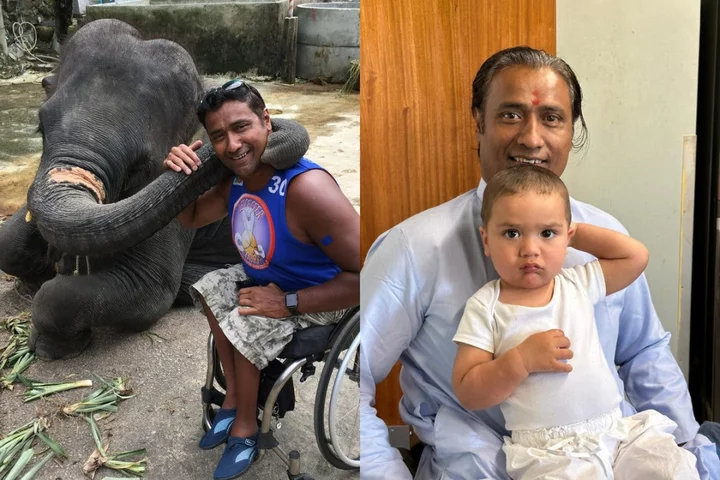
Paraplegic man with polio whose mother tried to cure him by putting him in a hole as a child now flourishing in the UK
A paraplegic man with polio who spent hours of his childhood in a hole in the ground in Mumbai, as his mother believed blood flow to his legs may cure the disease, and was “carried everywhere” until the age of 14, has said “you should never give up” as he defied the odds to become a professional wheelchair sportsman and father a child in his 50s. Jignesh (Jig) Vaidya, 52, who was born in Mumbai, India, but now lives in Leicester, contracted polio aged two as he was not “vaccinated at the right time” because his family could not afford it. This resulted in him being paralysed from the waist down, and he was hospitalised for at least six months at the age of four, with his legs in plaster to keep them straight. After this, Jignesh’s doctor said “there’s nothing we can do”, and since his family could not afford a wheelchair or further treatment, and his access to education was limited due to his disability, he remained at home for several years, with his mother Nirmala, now 83, “doing everything for him” – washing, feeding, changing and carrying him. Defying his difficult beginnings, Jignesh has spent his life moving across the world, becoming a professional wheelchair basketball player and enjoying a successful career, currently working as a project assistant at Maximus UK and broadcast assistant at the BBC, all before the birth of his now 20-month-old son, Jesse. He has not forgotten where his life began, however, and told PA Real Life: “As an Indian remedy, (my mother) dug a hole outside our house in the sun and put my whole body in it for six hours every day, neck down, in 30-degree heat. “She put really heavy bangles on both my legs and asked me to sit on the wall for three, four hours a day, dangling them, as she thought, ‘Jignesh will walk one day’.” Jignesh said his mother believed in Indian medication and thought the blood flow may help to cure his polio – a serious infection caused by a virus – but Jignesh described it as “hell”. From that point on, he thought, “this is going to be my life, this is it for me, it’s not going to get any better”. “I thought, ‘I’m going to be a loser – I hate to say that word – I’m not going to have any friends, and I’m going to be asking people for help all my life’,” he added. At the age of 14, Jignesh was given a wheelchair after his community rallied to raise some funds and he was finally able to go to school. He said he had to “catch up to the people who were ahead of (him)”, but he loved having some independence and no longer having to be carried by his family or others. He experienced a major setback when he moved to Dubai at 16, as he gave up his wheelchair to support another young boy with polio in Mumbai, and this left him in a dark place, mentally, as he had no “freedom”. Since then, however, he has moved to Leicester, received an “amazing education”, competed as a professional wheelchair basketball player, skydived, and fathered a son called Jesse, despite doctors saying this would not be possible. Jignesh said: “You should never give up in this life, and don’t be afraid to open up and ask for help. “Do what you’re best at and, if you work at something every day, whatever your goal is in life, you will get there. “It may take some time, maybe even years – it took me until the age of 20 to learn how to write my name in English – but I didn’t give up and look at me now.” From the age of 14, when Jignesh received his first wheelchair in Mumbai, he said he started to “flourish” and enjoyed going to school. However, he was subjected to discriminatory comments by his teachers, with one saying: “He’s handicapped, he can’t go at the front, put him in the back.” Since Jignesh’s late father Laxmikant, 66, was working in Dubai at the time, he ended up moving out there for two years at the age of 16 – but because his family could not afford to send him to school and he no longer had his wheelchair, he said he spent two years “looking out the window, watching people go by”. He said “there was nothing for (him)”, apart from a taxi ride once a month, and this significantly impacted his mental health, as he felt this had reversed all the progress he had made. “There was one point in my life, in those two years, where I was going to dark places and crying all the time,” he said. “I thought, ‘If mum’s not here, I could jump out the window and nobody will know. I can end it’, because I thought, ‘This is it, I can’t go back to what I had, I’m stuck’.” After his father earned enough money from those two years in Dubai, he and his family moved to the UK in 1988, when he was 18, and this is when everything changed. He received a new wheelchair in March 1989, aged 19, and started full-time education in September 1990, aged 20, where he learned English, maths, and how to use computers – and given he had impressive upper body strength and speed, he started playing sports as well, including wheelchair hockey and basketball. “I was a coloured person, a new arrival, couldn’t speak the language, and yet I was treated like everyone else,” he said. “I just thought, ‘Wow, I’m a part of society, I’m not being treated like a dog, like I was in Mumbai’, and if an opportunity comes in, I will take it, as there’s no going back. “When I started playing sports, I knew there and then that this is it, this is my life, this is my path.” Jignesh has since gone on to compete as a professional wheelchair basketball player internationally in places such as France, play for teams including MK Aces Wheelchair Basketball Club and Leicester Cobras, coach at the Coventry Crusaders club, skydive, and father Jesse with his partner Julie, 40, a teacher – confounding doctors. He goes to his local Nuffield Health gym every day, completing workouts and classes which have been adapted for him, and this helps to slow the progression of his polio as muscle weakness can increase over time. He “cherishes” being able to work with the “amazing” staff, including his personal trainer Matthew Molloy, in an inclusive environment where he is part of a team, supported, and everyone can “flourish”. Looking back, Jignesh realises why his mother, who he now cares for, would say, “everything happens for a reason”, and he is extremely grateful for his family’s love and support. He is excited to watch Jesse grow up, and he wants to continue encouraging disabled people to stay active, fight for their rights, and “never give up”. “I never thought that when I was in that hole, or when I was in Dubai and had nothing, that I’d be where I am today,” he said. “Sometimes, when I’m driving, I think, ‘This could be a movie; I’m going to wake up and be back in Mumbai’, so every day now, I pray and say, ‘Thank you’.” To find out more about Nuffield Health, visit: nuffieldhealth.com Read More Trypophobia: ‘Mushrooms, Beanie Babies and Doja Cat - I lived in fear for 30 years’ Lucozade addict drinks eight bottles a day and says it’s harder to quit than class-A drugs Charity boss speaks out over ‘traumatic’ encounter with royal aide Ukraine war’s heaviest fight rages in east - follow live
2023-08-14 19:29

Airlines, hotels branch out with experiences to lure travelers
By Doyinsola Oladipo NEW YORK Casino operator MGM Resorts International is finding Formula One's inaugural stop in Las
2023-08-14 19:17

Paige Spiranac's fans extend support as she claps back at wardrobe critics, says ‘my body, my choice’
In a recent segment of the 'Up & Adams' show hosted by Kay Adams, Paige Spiranac explained what she thought about people criticizing her golf outfits
2023-08-14 18:22
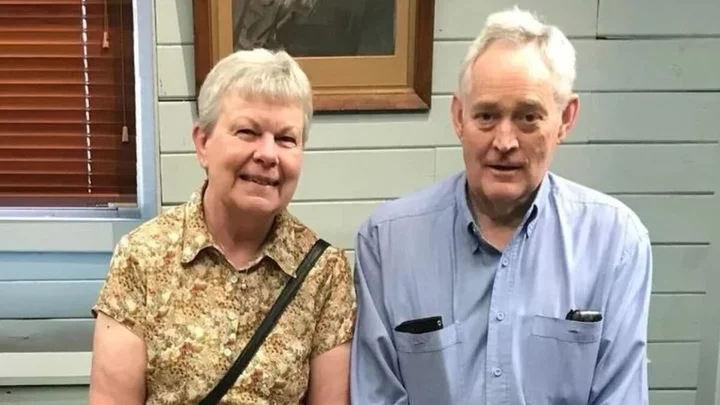
Australia mushroom deaths accidental, says cook
Erin Patterson tells police she is devastated and had no reason to harm her ex-husband's relatives.
2023-08-14 18:20
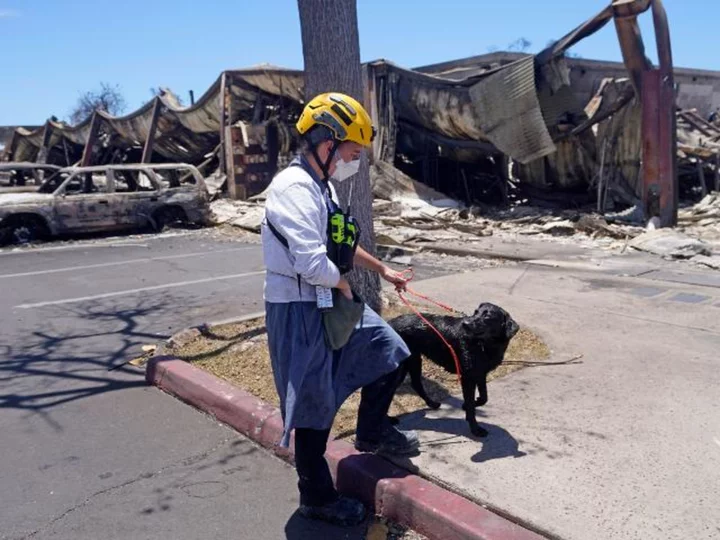
Cadaver dogs are in Maui to help find the dead. Here's how it works and why it's difficult
Twisted metal. The carcases of burned sedans. Charred shells of what once were homes, thriving businesses and cultural landmarks. As Maui officials continue searching through the wreckage for the many who are still missing after wildfires tore through the island, they have a new tool at hand: human remains detection dogs, often called cadaver dogs.
2023-08-14 18:20
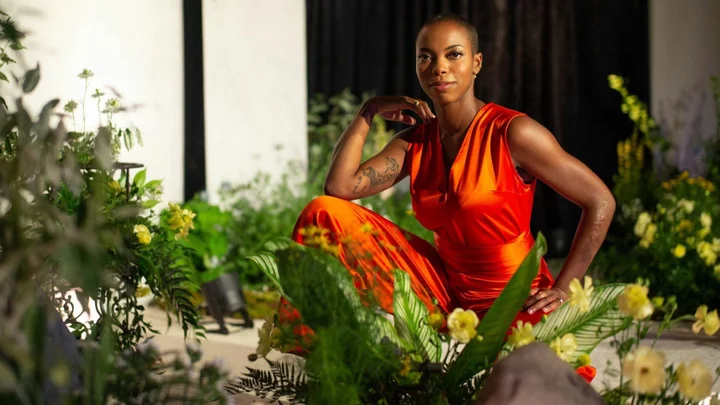
Sasheer Zamata talks 'Agatha: Coven of Chaos' and 'The First Woman'
Actress and Comedian Sasheer Zamata is having a magical year. Not only is her hilarious
2023-08-14 17:45
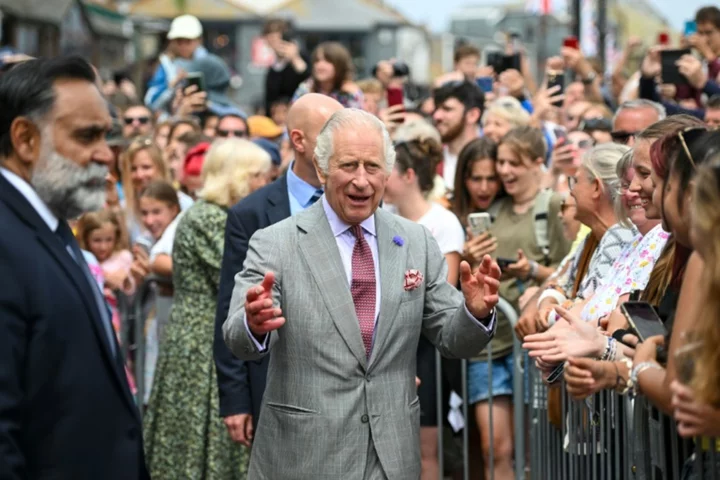
King Charles III to visit France in September: media
King Charles III will travel to France for a state visit in September, a French newspaper has reported, six months after a scheduled trip was...
2023-08-14 17:25
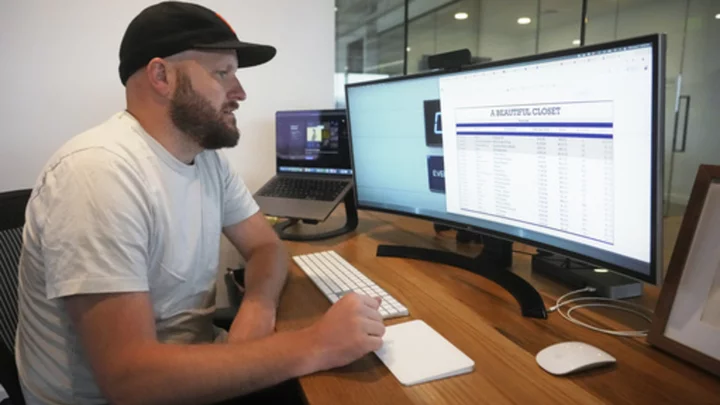
Thinking of buying a new pair of jeans? Breaking down the cost over time might help you decide
Shoppers are looking beyond just the price tag of a skirt or a pair of pants in the wake of still stubbornly high inflation
2023-08-14 17:23

Call Him Crazy, But Argentina’s Wildcard Just Won Primary Race
Javier Milei began and ended his victory speech shouting “Long live freedom, dammit!” and proceeded to thank his
2023-08-14 16:54
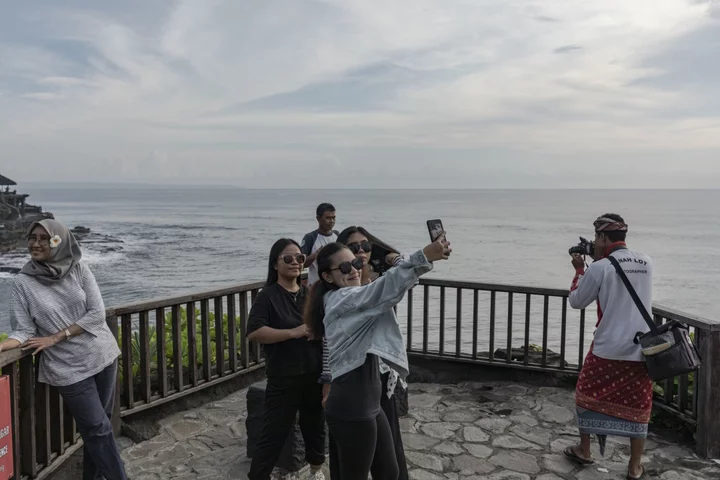
Top Vacation Spots Are Now Threatening Bad Tourists With Jail
These are just some of the latest examples of tourists behaving badly: A group of German guests toppled
2023-08-14 16:19
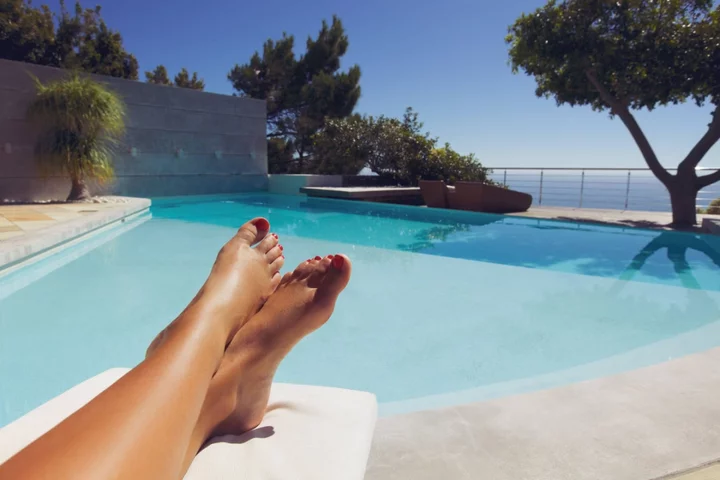
Is it ever safe to sunbathe?
Summer holidays are in full swing – and it’s very hot in Europe. Returning with a sun-kissed glow is always a bonus, but is lounging around on sunbeds ever truly safe? “As UV rays from the sun reach our skin, they stimulate the production of melanin, a pigment responsible for giving our skin its colour. Melanin acts as a natural defence mechanism, as it absorbs UV radiation and helps protect the skin from damage,” says Dr Tim Clayton, consultant dermatologist at Pall Mall Medical in Manchester. “Increased melanin production leads to tanning of the skin, which is the body’s way of trying to shield itself from further UV exposure.” So, if we are sunbathing to tan, our skin is always defending itself. Is it OK to sunbathe for a short amount of time? The longer you’re exposed to the sun, the worse the impact and damage may be. “Excessive and unprotected sun exposure, especially with frequent sunburns, increases the likelihood of developing skin cancer, including basal cell carcinoma, squamous cell carcinoma, and melanoma,” says Clayton. Even if a tan develops without any visible signs of sunburn over a shorter period of time, the DNA in your skin cells can still be damaged, notes Clayton. “The DNA damage caused by UV radiation increases the risk of skin cancer, including the most dangerous form, melanoma.” What about SPF? “Sunbathing, even with the use of sunscreen, still carries some risks. While sunscreen can provide some level of protection, it is not foolproof, and other factors should be taken into consideration,” he explains. While sunscreen can help reduce the amount of UV radiation that penetrates the skin, it does not completely block it. “Some UV radiation can still reach the skin, increasing the risk of DNA damage, premature ageing, and skin cancer.” A lot of the time, the protection we use does not actually work as it should. “Sunscreens are designed to reduce the amount of UV radiation that reaches the skin, but they are not perfect barriers. Factors such as inadequate application, insufficient SPF, and not reapplying sunscreen regularly can compromise its effectiveness. Additionally, some areas of the body, like the eyes and lips, may not be adequately protected by sunscreen alone,” Clayton continues. Equally, we may expose ourselves to too much sun, because we think it will be safe. “Wearing sunscreen may give a false sense of security, leading individuals to stay in the sun for longer periods, or neglect other sun-safe practices, such as seeking shade or wearing protective clothing. Sunscreen should be used as part of a comprehensive sun protection strategy, rather than relying on it as the sole means of protection.” We are not always the best at applying it, either. Sunscreen application requires proper technique and thorough coverage to be effective. Many of us don’t apply enough sunscreen, miss certain areas, or fail to reapply it when needed. “These application errors can reduce the sunscreen’s effectiveness and leave the skin vulnerable to UV damage,” he says. Is a tan always bad for my skin? However much you may want to look bronzed, it is not safe. “While a tan is often seen as a desirable aesthetic for some individuals, it is important to understand that any change in skin colour, due to sun exposure, indicates damage to the skin.” How can I get a tan instead? A fake tan may have to be the answer if you want to protect your skin and get a glow. As Clayton says: “Self-tanning products or spray tans can provide a safer alternative to achieve a tanned appearance without subjecting the skin to harmful UV radiation.” Read More Charity boss speaks out over ‘traumatic’ encounter with royal aide Ukraine war’s heaviest fight rages in east - follow live A beginner’s guide to pickling your homegrown fruit and veg Messages urging smokers to quit could be placed inside cigarette packs King and Queen ‘utterly horrified’ by Hawaii wildfires in letter to Joe Biden
2023-08-14 15:51

Was Jenna Bush Hager ever arrested? ‘Today’ host has been open about the time underage drinking got her into trouble
Jenna Bush Hager and her twin sister attempted to order alcohol using a borrowed ID while they were underage
2023-08-14 15:49
